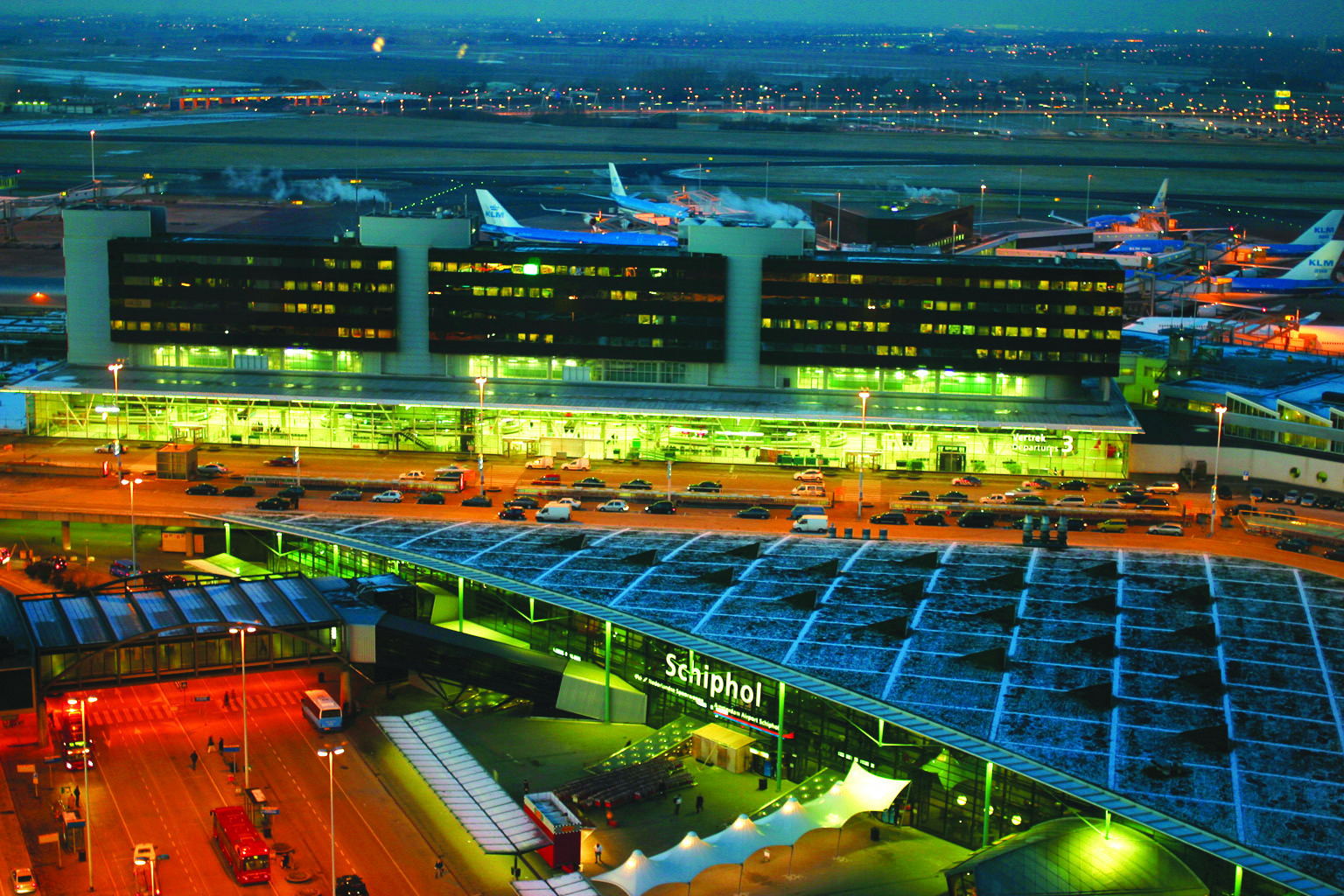Schiphol sees cargo volumes slide on fewer freighters and tough market
24 / 01 / 2020

Amsterdam Schiphol Airport at night
Schiphol saw its cargo traffic drop last year as reduced freighter flights and weaker market conditions took their toll.
Total cargo volumes for 2019 dropped by 9% year on year in 2019 to 1.6m tonnes.
Full freighter volumes fell by 13.2% to 0.85m tonnes while belly cargo volumes dropped 2.3% to 0.7m tonnes.
The airport is currently facing a slot shortage that has resulted in some freighter operators switching to nearby alternatives.
The three largest destinations for cargo tonnage were Shanghai, Moscow and Nairobi.
“The figures in 2019 were in line with our expectations as we continue to face full freighter slot challenges, on top of a weakening of the global air cargo market,” said Maaike van der Windt, director aviation marketing, cargo and customer experience, Amsterdam Airport Schiphol.
“Operating in a slot constrained environment is challenging and it is having an impact on our results.”
The airport said it is seeking a resolution with the Government of the Netherlands to better maintain full freighter flights.
“Our main priority is to maintain full freighters and we are looking into a more structural solution as full freighter flights are critical for our intercontinental destinations,” said van der Windt.
Despite the challenges, van der Windt is slightly optimistic for the airport’s prospects in 2020 as “operating under slot restricted conditions has led to a rethink of how it conducts business”.
The operating environment has resulted in a revised cargo approach to maintain full freighters and the main focus is to maintain and grow the existing cargo network.
“Furthermore, to utilise the maximum capacity available on planes we are focusing on that capacity is as full as possible, which will result in a more sustainable approach towards the business of cargo,” said van der Windt.
The year-end figures revealed a decrease in volumes across all markets, apart from an increase in the Middle East inbound segment.
Outbound traffic to the Asian region was down 14.1% to 260,245 tonnes and inbound declined 10.3% to 268,242 tonnes.
The outbound North American market fell 2.2% to 164,603 tonnes, while inbound was down 14.2% to 112,019 tonnes.
Cargo inbound to Latin America declined 11.3% to 115,506 tonnes and outbound dropped 6.3% to 76,159 tonnes.
European figures show outbound traffic fell 2.3% to 119,635 tonnes and inbound decreased 8.5% to 106,480 tonnes.
The Middle East market inbound market showed a positive story as inbound was up 4.7% to 93,089 tonnes, but outbound was down 3.8% to 106,178 tonnes.
Outbound traffic to Africa was down 2.9% to 51,828 tonnes and inbound declined 14.3% to 96,278 tonnes.
“We continue to focus on working together as a community and are focusing on data and digitalization in order to be ready for the years to come in which our ambition is to be a high quality and stainable airport,” said van der Windt.
“Sustainability is fundamental for the future success of Amsterdam Airport Schiphol and with the revision of the Smart Cargo Mainport Program (SCMP), plus the support of our partners, we are confident we can reach our goal of becoming the smartest and most sustainable cargo hub in Europe.”














